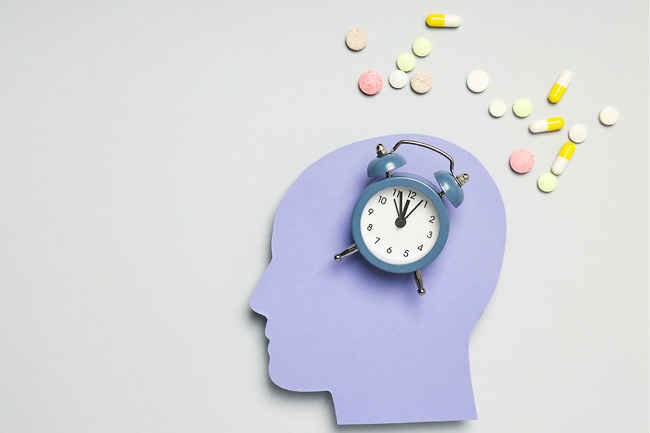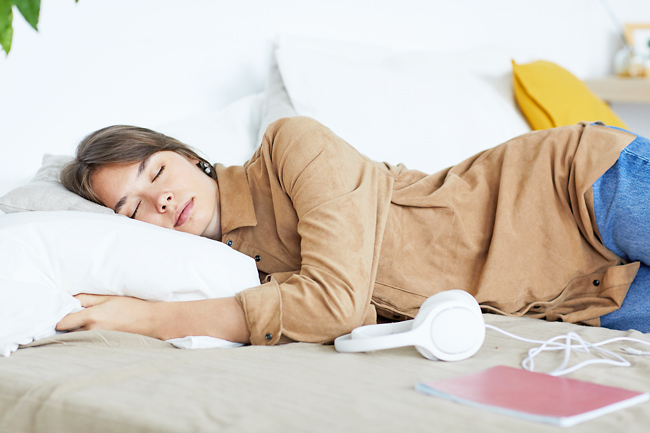ANN/THE KATHMANDU POST – Sleep serves not only as a vital bodily repair mechanism but also as a cornerstone for cultivating a healthy lifestyle. Its role extends beyond mere physical rejuvenation, significantly shaping our overall wellness.
A well-rested mind exhibits greater resilience and adaptability, enabling individuals to rebound from setbacks and manage stress more effectively.
Recognising sleep as a dynamic force influencing both physical and mental well-being underscores its pivotal role in establishing a sturdy foundation for a healthy life.
Psychologist Anjana Das Pariyar, a counsellor at Adhyayan School in Tokha, Kathmandu, delves into this topic.
WHAT ROLE DOES SLEEP PLAY IN MANAGING STRESS AND ANXIETY?
Adequate sleep is like a reset button for the mind and body, especially when it comes to managing stress and anxiety.
When you’re well-rested, your brain can better process and consolidate emotional experiences. This helps in putting things in perspective and preventing the accumulation of stress.
Moreover, when you’re tired, your ability to handle challenges and uncertainties is compromised.
You might find yourself more reactive and less able to think clearly. This can escalate stress and contribute to feelings of anxiety.
On the flip side, establishing good sleep habits, such as maintaining a consistent sleep schedule, creating a comfortable sleep environment, and practising relaxation techniques before bedtime, can significantly contribute to stress reduction.


HOW DOES INADEQUATE SLEEP IMPACT MENTAL HEALTH?
Insufficient sleep affects mental well-being, including compromised cognitive functions, challenges in emotion regulation and overall psychological health.
Insufficient sleep impairs both short-term and long-term memory, affecting memory development and retrieval.
Mood swings and heightened irritability are associated with sleep deprivation, making it challenging to cope with minor stressors that might be manageable with sufficient rest.
Adequate sleep is vital for regulating stress chemicals like cortisol, and elevated cortisol levels from insufficient sleep may amplify the stress response.
Sleep deprivation can result in heightened emotional reactions to stimuli, causing individuals to react more strongly to stressors and struggle to control their emotions.
Moreover, sleep plays a crucial role in preserving proper levels of neurotransmitters like dopamine and serotonin, and disruptions in sleep can lead to imbalances in these neurotransmitters, increasing the risk of mood disorders.
ARE THERE WARNING SIGNS THAT SOMEONE’S MENTAL HEALTH MAY BE AFFECTED BY SLEEP DEPRIVATION?
Yes, there are several warning signs indicating that sleep deprivation can impact an individual’s mental health. While these indicators may vary from person to person, common manifestations include:
– Irritability: A lack of sleep can lead to moodiness and a reduced tolerance for frustration.
– Mood swings: The instability in emotions is a notable consequence of inadequate sleep.
– Impaired focus and concentration: Tasks requiring sustained attention become challenging, thereby affecting overall productivity.
– Memory issues: Insufficient sleep can result in reduced cognitive function, memory loss, and difficulty recalling specific details.
– Physical symptoms: Sleep-deprived individuals may struggle with decision-making and are prone to making poor judgments. Clarity in assessing circumstances may diminish and impulsive actions could become more likely, affecting overall decision quality.
– Increased susceptibility to stress: Daily challenges may become more overwhelming for those experiencing sleep deprivation, leading to a rise in stress levels.
– Changes in appetite: Alterations in appetite, influenced by sleep deprivation, can disrupt hormones that control hunger, resulting in changes in eating patterns. Some individuals may experience stronger cravings for high-sugar or high-calorie foods, while others may lose their appetite altogether.
– Social withdrawal: Individuals undergoing sleep deprivation may withdraw from social interactions. A diminished motivation to engage with others, coupled with a sense of isolation due to fatigue or heightened irritability, may lead to reduced social interactions.
– Difficulty coping with emotions: Sleep deprivation can challenge effective emotional regulation. Heightened emotional responses, such as increased anxiety, sadness or frustration, may occur, and individuals may find it challenging to cope with these intense emotions.
HOW DOES IMPROVING SLEEP HABITS CONTRIBUTE TO BETTER MENTAL WELL-BEING?
Making sleep a priority can have a significant positive impact on one’s overall quality of life, mental stability and physical health.
People who intentionally work to improve their sleeping patterns frequently have benefits that go beyond simply getting more sleep – they often have an impact on multiple aspects of their overall health.
Adequate and high-quality sleep is directly linked to resilience and emotional control.
Improved sleep quality can result in more stable moods, which lowers the likelihood of anger and mood fluctuations.
Getting enough sleep is essential for regulating the body’s stress response and preserving healthy levels of stress chemicals like cortisol.
WHAT CAN ONE DO TO MAINTAIN A HEALTHY SLEEP ROUTINE?
To enhance sleep patterns and promote improved mental health, individuals can consider incorporating the following practices.
Firstly, maintaining a regular sleep schedule with consistent bedtimes and wake-up times, even on weekends, is crucial.
You should create a relaxing sleeping environment that ensures the bedroom is cool, quiet and dark, complemented by comfortable pillows and mattresses.
It’s best to avoid using screens right before bed because the blue light they generate can interfere with the creation of melatonin.
You should try to avoid using screens for at least an hour before bed.
Better sleep quality also requires limiting caffeine use, particularly in the hours before bed.
Last but not least, regular exercise can help with sleep, though intense exercises should be avoided in the immediate period before bedtime. – Anish Ghimire






